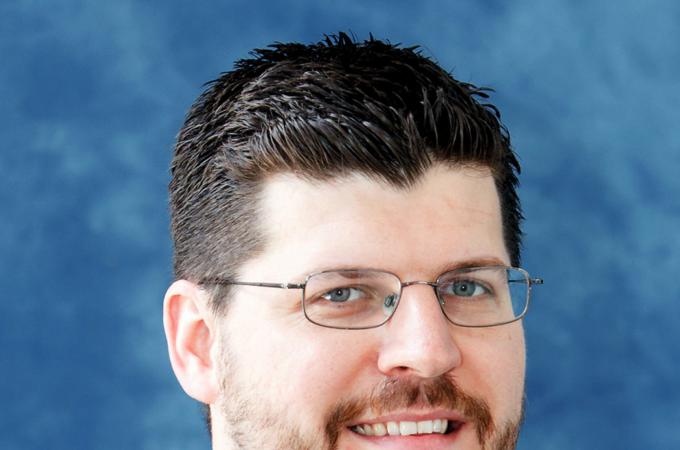Ordination Class of 2018: Deacon Andrea Povero
[This is the seventh in a series of articles profiling each of the seven men who will be ordained to the priesthood by Cardinal Seán P. O'Malley at the Basilica of Our Lady of Perpetual Help (Mission Church) on May 19.]
"When I was seven years old, I lost my father, and it was in the Church that I found hope," stated Deacon Andrea Povero.
The youngest of four children, without a father figure at home, Deacon Povero recalls that his childhood was filled with anxiety and insecurity.
Growing up in Ivrea, a city near Turin, Italy, Deacon Povero remembers the first time the thought of entering the priesthood came to him.
"I was in Porto San Giorgio (a town on the Adriatic coast), on the beach, and the thought just came to me," he smiled. "It was just a thought, but it was one that would not go away."
He was only 13.
Although he felt called to the priesthood, he never shared that with anyone, for fear that people would either push him into entering the seminary, or dissuade him from pursuing his vocation.
As Deacon Povero got a little older though, he "threw himself" into his studies and was what he described as a "typical teenager" in Italy.
"I had friends, sports, etc., but the thought of the priesthood was always there," he said.
When he was 16, Deacon Povero met a girl and fell in love.
"There were many fears that blocked this relationship though," he said, "and one of them was that I felt called to the priesthood very strongly. I was afraid to lose the Church and to lose God, and so I was always holding back in the relationship."
This reluctance ultimately caused him his relationship, he said. And upon graduating high school, he found himself living away from his family, studying physical therapy at university and completely alone.
"God was creating a desert all around me," the 30-year-old said. "I had no friends, no father. I was confused. I even stopped going to church for a while, but I knew God was calling me ... After two months of living like this, this idea of the priesthood would not leave me alone," he said.
Still in a state of indecision, Deacon Povero attended the wedding of a cousin whose brother was Father Emanuele De Nigris, now the rector of the Redemptoris Mater Seminary of the Archdiocese of Miami.
"In the middle of the wedding, he walked up to me and said, 'What are you waiting for? The priesthood awaits you.' I hadn't told anyone -- not one person -- and he said this to me. I couldn't believe it," he said, shaking his head.
"I knew I had to listen," he added.
Deacon Povero attended an international retreat of men from the Neocatechumenal Way who are thinking of entering the priesthood and within two weeks he was sent to study at the Redemptoris Mater Diocesan Missionary Seminary of Boston.
"In the seminary, I have really experienced that God is my father," he said. "I have found my place, and I don't feel like an orphan anymore. I am not abandoned."
"If I have ever felt an absence in my life because of the death of my father, now I have a presence of God the Father in my life," continued Deacon Povero. "It is because of my loss that I experience God the Father in a deeper way than many people. I feel precious."
Having this experience has helped him in his time as a deacon, he said. Because he was assigned to St. Patrick Church in Brockton, a place where more than 85 percent of teens live without a father, he has been able to relate to the young people he meets in a way that is "very meaningful" to them, he said.
"I realize that my life is lived in preparation for a mission," he said, adding that he knows God will use the experiences of his life to better serve those he is called to serve.
"I'm looking forward to seeing how God will surprise me in this mission of the priesthood," he said. "I have gotten to this point of my life because God, with little steps, has gotten me here. Now I can't wait to see what else he will do."
Deacon Povero understands that there will be challenges ahead, but he knows that any challenges are "opportunities to lean on God."
"We live in a time that everything is about independence," he mused. "Life goes at a very high speed and, in front of problems, we have a mentality that we can solve problems immediately and alone. I know that I will always be called to be dependent on God -- as a priest, and as a person. I must live in the truth with God at all times."



















